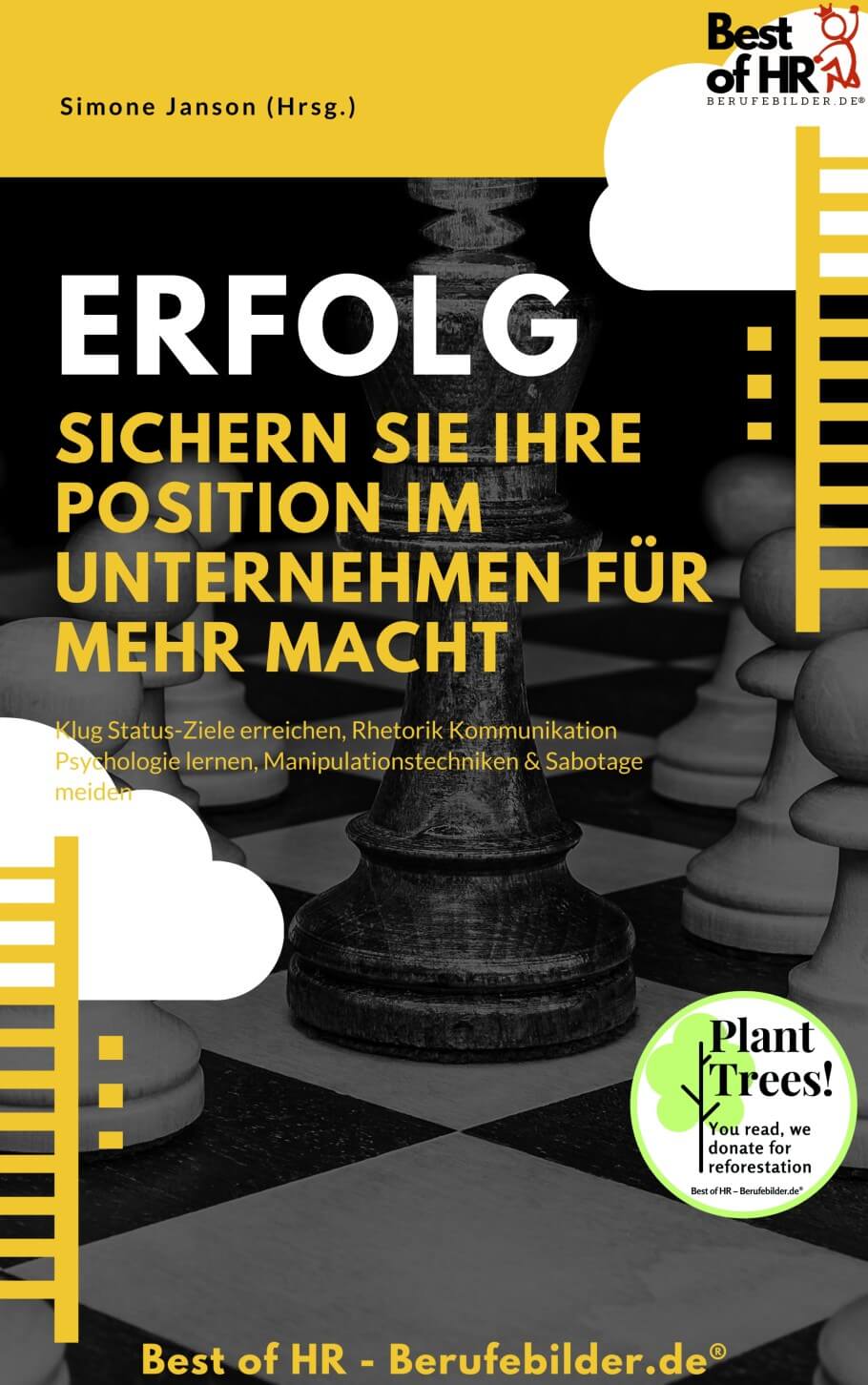For their successful, good life Information you really need: Government-funded publisher, awarded the Global Business Award as Publisher of the Year: Books, Shops, eCourses, data-driven AI-Services. Print and online publications as well as the latest technology go hand in hand - with over 20 years of experience, partners like this Federal Ministry of Education, customers like Samsung, DELL, Telekom or universities. behind it Simone Janson, German Top 10 blogger, referenced in ARD, FAZ, ZEIT, WELT, Wikipedia.
Disclosure & Copyright: Images created as part of a free collaboration with Shutterstock.
Income Tax & Business Expenses: What Do Small Businesses Need To Know?
By Gerald Beirodt (More) • Simone Janson (More) • Last updated on October 25.11.2012, XNUMX • First published on 25.11.2012/XNUMX/XNUMX • So far 8497 readers, 1046 social media shares Likes & Reviews (5 / 5) • Read & write comments
Logically, actually: You have to pay income tax on your profit, if it is above the property tax allowance. You pay income tax personally, not your company. But what is the profit and how is it calculated for small companies that do not make an accounting?
- Search and find information
- Curiosity of tax law
- Caution withholding tax
- Electricity generation and sale in one's own home is an entrepreneurial activity
- The tax declaration
- The tax assessment
- What is considered business expenses?
- Top books on the subject
- Read text as PDF
- Advice on success, goal achievement or marketing
- Book eCourse on Demand
- Skate eBook as desired
Search and find information
That is at the beginning Income from your entrepreneurial activity, for which you have to pay income tax. But not only for that: If you are not only with your company Money earn, but also with capital gains, rentals and non-self-employed activities, you have to pay tax on that too.
In the case of the tax declaration, you must list your income individually for each type of income and then add it together. The key point: If you have lost any kind of income, you can offset it against your income from other sources.
Curiosity of tax law
The books on the subject (advertising)
German tax law comes up with some curiosities - for example on the deductibility of detectives or on electricity generation in your own home.
No wonder then that the same horror can be observed every year: The tax return throws up adults People back to the stage of little kids who haven't cleaned up and now fear scolding. People with high school diplomas and brown belts in karate feel feel stupid and helpless in the face of horrible verbal monsters. And it is a template for relationship crises.
Caution withholding tax
Since the flat-rate tax came into force, losses from the sale of listed shares or other shares in a corporation may no longer be offset against other income, including interest or dividends, but only against profits from such speculative transactions.
Finally, you use the income to calculate your profit - the so-called taxable income. This is done by deducting special expenses, extraordinary expenses and of course operating expenses from the total amount of your income. From what is left as a profit, the property tax exemption is tax-free. Only what goes beyond that has to be taxed.
Electricity generation and sale in one's own home is an entrepreneurial activity
Discounts for your success (advertising)!
Anyone who operates a block heating power plant in their house and thus generates electricity that is regularly fed into the power grid for a fee is considered an entrepreneur - with all the advantages and disadvantages. A ruling by the Federal Fiscal Court (VR 80/07) states: A combined heat and power unit installed in a single-family house, with which not only heat but also electricity is generated, which is fed into the general electricity grid in whole or in part, regularly and not only occasionally, serves the purpose of sustainable Generating income from electricity generation. Such an activity therefore establishes the entrepreneurial status of the operator, regardless of the amount of income generated, even if he is not otherwise entrepreneurial.
All entrepreneurial obligations follow from this, but these are limited below certain income thresholds: business registration and payment of trade tax/municipal tax (only from a profit of €24.500), membership in the IHK, etc. But you can also do that Costs deduct as input tax from the purchase of the combined heat and power plant under the general requirements of § 15 UStG.
The tax declaration
A major difference to the tax payments for employees is in Sinn and purpose of the tax return: As an employee, taxes are automatically deducted from you every month and you get the overpaid taxes at the end of the year with the tax return. It is therefore voluntary for employees.
As a self-employed person, you only state how much you actually earned when you file your tax return. Therefore, you must definitely hand them in. Only if you are below the tax allowance and you are more than that with your self-employment Minijob-limit earned in the year, you are out of this mandatory freed.
The tax assessment
You pay your taxes when you receive the corresponding tax assessment from the tax office. If you pay more than 200 Euro Taxes per year, you will have to make quarterly income tax prepayments in the future. The amount for this determines the tax office. Next year, you can recover the tax that you may have overpaid at the time of your tax return - or pay tax on it, as the case may be.
If you are not obliged to do accounting, your tax return usually consists of the income tax return form, the form system GSE for income tax return and determination of profit on the income surplus calculation form. You must submit the declaration for the previous year to the tax office by May 31 without being asked. If you have a tax advisor, the deadline is extended to September 30th. And you can apply for an extension of the deadline at the tax office – an informal letter is sufficient for this.
Most people still submit their tax returns on paper. The forms for this are available in every tax office or can also be downloaded from the Federal Finance Administration. However, you can now also submit your income tax return via Internet hand over. In near Future should this even become mandatory - as it already exists today for the sales tax return.
What is considered business expenses?
However, the cardinal question for every tax return is: How do I determine the profit? And what counts as a business expense? There is actually a very simple answer to this: the profit is the amount that appears on the income statement after deducting your operating expenses. And in principle, all costs related to the generation of your income are operating expenses. Private expenditure however, you are not allowed to withdraw. How strange this can be in detail, we would like to show as an example with two judgments of the financial law:
You cannot deduct the detective for your wife from the tax
The Rhineland-Palatinate Finance Court had to decide whether the fees for a lawyer and a detective hired in connection with a maintenance process were considered extraordinary expenses by the tax can be dismissed.
The applicant had submitted that the costs were inevitable. However, the tax court ruled that the expenses were a completely different matter that was outside of the divorce proceedings. Therefore there is no direct connection with the divorce process. That applies both to the legal costs in this matter as well as to the associated detective costs.
Flat-rate taxation of the monetary benefit: with limits
With the judgment of January 11, 2009 VI R 22/06, the Federal Fiscal Court (BFH) decided that a Company The reserved evening event does not constitute a company event that entitles you to flat-rate taxation of the benefit in kind due to a lack of openness among the group of participants.
In the case of the dispute, an international consulting company (employer) held various specialist conferences for the employees Executives through. The meetings were followed by evening events with musical and artistic performances. The Society assumed tax-privileged company events; the pecuniary benefits accruing to executives should therefore be taxed at a flat rate of 40% in accordance with Section 2 (1) Sentence 2 No. 25 of the Income Tax Act. In contrast, the tax office (FA) determined the wage tax with an individually calculated, significantly higher flat-rate net tax rate.
The BFH confirmed the opinion of the FA. He first stated that company events Contact of the employees among themselves and thus also the working atmosphere. If the benefits from the employer do not exceed a certain exemption limit, there is no salary due to the employer's own interests. However, in the case at hand (assessment periods 200 to 1997) this exemption limit of DM 2001 was significantly exceeded. The BFH also confirmed its previous case law, according to which the Term of the company event is only fulfilled if participation is open to all company employees; the limitation of the group of participants should not prove to be a preference for certain groups of employees. The flat-rate taxation with an average tax rate of 25% is structurally designed to enable a simple and also appropriate taxation of such pecuniary benefits that accrue to the entire workforce taking part in the company event with employees from a wide variety of wage groups. The tax rate of 25% reflects the "vertical participation" of the workforce in the company event appropriately and realistically. In the case of evening events reserved for executives only, however, the average tax rate of 25% fails in particular to comply with the principle of taxation based on financial ability.
Top books on the subject
Read text as PDF
Acquire this text as a PDF (only for own use without passing it on according to Terms and conditions): Please send us one after purchase eMail with the desired title supportberufebilder.de, we will then send the PDF to you immediately. You can also purchase text series.
4,99€Buy
Advice on success, goal achievement or marketing
You have Ask about career, Recruiting, personal development or increasing reach? Our AIAdviser helps you for 5 euros a month – free for book buyers. We offer special ones for other topics IT services
5,00€ / per month Book
Book eCourse on Demand
Up to 30 lessons with 4 learning tasks each + final lesson as a PDF download. Please send us one after purchase eMail with the desired title supportberufebilder.de. Alternatively, we would be happy to put your course together for you or offer you a personal, regular one eMail-Course - all further information!
29,99€Buy
Skate eBook as desired
If our store does not offer you your desired topic: We will be happy to put together a book according to your wishes and deliver it in a format of yours Choice. Please sign us after purchase supportberufebilder.de
79,99€Buy
Here writes for you
Gerald Beyrodt is a freelance journalist in Berlin, including for Deutschlandradio. He writes about cultural topics, universities, the normal madness in everyday life, all sorts of colorful things, religion and Judaism. For print media and radio, podcasts and customer magazines. All texts by Gerald Beyrodt.
 Simone Janson is publisher, Consultant and one of the 10 most important German bloggers Blogger Relevance Index. She is also head of the Institute's job pictures Yourweb, with which she donates money for sustainable projects. According to ZEIT owns her trademarked blog Best of HR – Berufebilder.de® to the most important blogs for careers, professions and the world of work. More about her im Career. All texts by Simone Janson.
Simone Janson is publisher, Consultant and one of the 10 most important German bloggers Blogger Relevance Index. She is also head of the Institute's job pictures Yourweb, with which she donates money for sustainable projects. According to ZEIT owns her trademarked blog Best of HR – Berufebilder.de® to the most important blogs for careers, professions and the world of work. More about her im Career. All texts by Simone Janson.
4 Responses to "Income tax & business expenses: What do small businesses have to consider?"
-
I stumbled upon this page by chance and think it's really good.
-
This tax post reminds me to bookmark your blog so I can always come back.
-
So that means that one
Trader who is below the tax-exempt amount,
does not have to submit an ESt.-declaration? And if so by what
is this justified?I only know the blanket statement of my FA that
Traders always submit an ESt.-declaration
need to [sales tax §18 (3)].
Thank you!-
Hallo,
there are several laws. You can find a note in the Income Tax Implementation Regulation http://www.gesetze-im-internet.de/estdv_1955/__56.html
However, we can not make legal advice here; more precise information can only be provided by a tax consultant.
It is probably easier to make the tax return - especially if the tax office requests it. Because they want to make sure that you are really below the tax allowance.
-



















Post a Comment